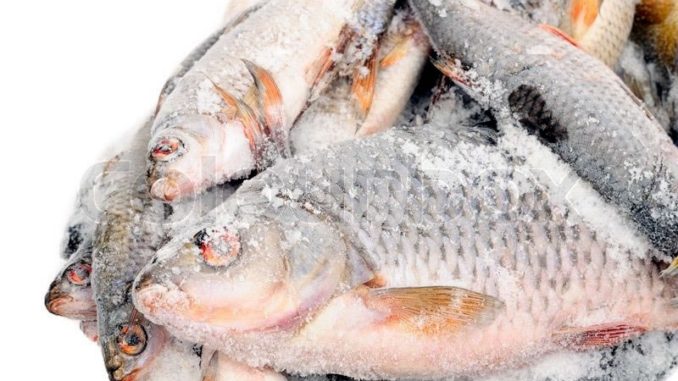
As part of moves to permanently flatten the curve of the coronavirus pandemic in the country, health experts have cautioned Nigerians on the consumption of imported frozen foods for now.
The warning is coming on the heels of a circular issued by the Nigeria Customs Service (NCS), recently, on a planned importation or smuggling in of frozen chicken from China and Ecuador.
In the memo dated September 9, 2020, and signed by the acting deputy comptroller in charge of enforcement, I.T Magaji, addressed to all zonal coordinators, Area comptrollers and Border drill coordinators, it was revealed that the Chinese government had detected coronavirus in imported food products.
Accordingly, the Comptroller General of Customs (CGC), Col Hameed Ali, warned all commands and zones to intensify anti-smuggling activities towards ensuring that the frozen chicken is not smuggled into the country.
The statement read: “Intelligence reports reaching Headquarters reveals that during routine screening of meat and seafood, Chinese authorities detected coronavirus in a sample of frozen Chicken wings and shrimps from Brazil and Ecuador.
“You are reminded that importation of live or dead birds including, frozen poultry; HS Code 0105: 100-0105.99. 0106.31.00.00010639.00.00, 0207:26.00.00 and 0210:99.00.00 through land borders, airports, and seaports are absolutely prohibited.
“Consequently, the CGC has directed all commands and zones to intensify anti-smuggling activities towards ensuring that the frozen chickens are not illegally smuggled into the country through the land borders, airports and seaports,” the statement added.
The former Chairman, Lagos State Chapter of Nigeria Veterinary Medical Association (NVMA), Dr. Alao Mobolaji, said for goods coming in by sea, which often take a minimum of two weeks, there might be no cause for alarm for external packaging.
He, however, said for food packages coming by air transport, which take only a few days, some precautionary measures can be put in place to disinfect them.
“From available scientific findings, it is yet to be established that the virus can be contracted from food or frozen foods. It is also known that the virus does not multiply in food or food animals, for now, the virus multiplies only in humans, and transmission is mainly by human-to-human contact.
“Since the virus does not multiply on food or animal frozen foods, the possibility of human infection from frozen food does not arise. The virus is known to survive for between three to seven days on plastic, steel, glass, and wood, one to four days on paper, tissue paper, and carton.
“However, the coronavirus family has shown survival of up to two years at sub-freezing temperatures. The same is yet to be established of the COVID 19 virus, but there is a possibility since they belong to the same family,” he said.
Alao advised Nigerians that for this period, they should patronise more of locally produced frozen foods, “and if they don’t have other options but the imported ones, they should pay careful attention to washing these products thoroughly and cook sufficiently before consuming.
“This pandemic can be averted if we stick to the prevention and management procedures as laid down by the World Health Organisation (WHO), if we follow religiously the safety protocols of our local centres for disease management, and most importantly not throw caution to the wind too early. Nigerians like we can already see are already going about their daily businesses, giving little or no importance to the seriousness of this pandemic crisis. Like we have been cautioned, the worst is really not over yet.”
Chairman of the NVMA in the state, Dr. Olufemi Aroso, also warned Nigerians to desist from consuming the foreign frozen foods. “We should get down to production and produce more for local consumption and probably exportation. We should buy locally produced frozen chickens and turkeys, as they are usually safer, fresher, and better.
“There is no evidence to date of viruses that cause respiratory illnesses being transmitted via food or food packaging. Coronaviruses cannot multiply in food; they need an animal or human host to multiply.
“If there are looming health crisis, it probably has to do with the unhealthy preservatives that some use in preserving this frozen stuff and their health hazard on man, but not COVID-19 as a health problem.
“It is highly unlikely that people can contract COVID-19 from food or food packaging. COVID-19 is a respiratory illness and the primary transmission route is through person-to-person contact and through direct contact with respiratory droplets generated when an infected person coughs or sneezes.
Even though there are some claims of such, it does not look logical and true.”
END

Be the first to comment